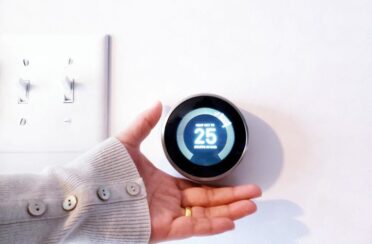 Heard any cooling misconceptions lately? With the summer heat upon us, certain myths about air conditioning always stage a comeback. Most don’t stand up to the actual facts, however. Keeping a house comfortable in hot summer weather is a more complex process than many folks realize. Many common cooling misconceptions inhibit indoor comfort and increase wear and tear on AC components. Here are some examples of cooling misconceptions we often hear at this time of year, along with the actual facts.
Heard any cooling misconceptions lately? With the summer heat upon us, certain myths about air conditioning always stage a comeback. Most don’t stand up to the actual facts, however. Keeping a house comfortable in hot summer weather is a more complex process than many folks realize. Many common cooling misconceptions inhibit indoor comfort and increase wear and tear on AC components. Here are some examples of cooling misconceptions we often hear at this time of year, along with the actual facts.
Turning your AC off while you’re gone all day reduces energy costs.
Or not. Cooling down an overheated house after a long, hot day without air conditioning often consumes more energy than selecting a moderate thermostat setting and letting the AC cycle on and off normally while you’re away.
Closing supply vents in unused rooms reduces your air-conditioning bills.
If only it were that simple. An air conditioner operates at full capacity every time it cycles on. It doesn’t adjust cooling output based on whether vents are open or closed. Closing individual vents increases pressure throughout ductwork and creates unbalanced airflow, making certain rooms too chilly while others don’t get cooled enough.
An extremely low thermostat setting cools a hot house faster.
Cooling misconceptions strike again. A central air conditioner puts out the same volume of cool air whether the thermostat is set at your normal desired room temperature or pushed down into the frigid range. A better idea: Use a programmable thermostat to bring a hot house down to a comfortable temperature before the time you normally arrive home.
A bigger AC means better cooling.
Sounds likely, but facts speak louder. An oversized air conditioner with excess BTU capacity runs extremely short cycles, turning on and off rapidly. This causes noticeable temperature swings, increases wear and tear on the unit, and fails to reduce indoor humidity, which is a critical element of cooling. A new AC installation should include a professional sizing calculation to determine exact BTU capacity for the house.
For more hard facts to dispel cooling misconceptions, contact the pros at Arpi’s Industries.


